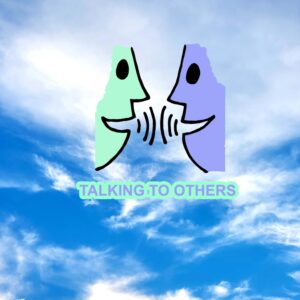
So, we call up a friend or hop on social media and begin to unload!
That blankety blank (put the event that last pushed your button here). I’m madder than a wet hen (as we say in Texas or wherever you live). I want to (put what you had to say here).
However, blowing off some steam can be a slippery slope if we’re not careful.
- The angrier we get, the more we stew about it.
- The more we stew, the more we want to talk.
- The more we talk and complain, the less our friends and allies want to listen.
- The less they want to listen, the more isolated we become.
- The more isolated we become, the more upset we become.
- The more upset we become, the more the negative voices crowd in, telling us we’re a bad person not worthy of love.
Phew!
I must admit, I’m at this point regarding the political state of the union. My poor husband now tries to cut me off at the pass when I begin railing during the nightly news I insist on watching.
Why do I go down this rabbit hole? It feels good at the time to rant (no let out choice curse words is more appropriate here) at the TV, but, in the long run, its not helping my relationship.
Then, too, scientists have discovered that human body interprets chronic psychological threats as if it were being physically attacked. Our system basically gets jacked up and, in the long term, our immune system is suppressed. Our health suffers. Ever hear the term, worried sick?
CONSTRUCTIVELY TALKING TO OTHERS
What can we do to keep from entering the vicious spiral while venting?
- Give it time. Take a walk, hit a pillow, scream. Let yourself calm down.
- Avoid raving on social media. Others are turned off. This type of communication, being one-way, doesn’t allow interaction nor does it reveal the communication cues of body language or tone of voice.
- Pick who you interact with carefully. Don’t overload one person. Don’t engage someone who is only going to fuel your anger.
- Visit a therapist. They are paid to listen and help problem solve.
How to be a good friend when someone needs to let it all out:
- Allow the person to blow off steam. You can say, “I see you’re upset,” “This is really bothering you, isn’t it?” This validates the individual’s emotions. The emotions are real, whether you agree with them, or not. If your friend doesn’t calm down soon, disengage. You are not a punching bag.
- When they are calm, you can ask clarifying questions, “Let me be sure I understand…” Don’t offer anything until you’re sure you comprehend the situation.
- Then, and most importantly, help problem solve.
Use these techniques:
Ask questions: Why, why not, what if? One of my favorite ones is: If you could wave a magic wand and have any outcome you wanted, what would it be?
Offer alternative solutions: A possibility is…..What do you think about it?
Reframe: Help the other party look at the situation from a new perspective. What could be possible positive outcomes?
Share experiences: Disclose experiences so that the individual will realize they are not the only one going through this type of situation.
Discuss costs: Explore both emotional and financial costs.
Focus on the future: Work to put the past behind and look to the future.
Again, when helping, remember that you did not create the problem and it is not your responsibility to own it or fix it. If you feel you are getting sucked in, disengage.
Sign up on www.mariewatts.com to receive future Stories About Life delivered to your email address or read more stories by clicking here.

Recent Comments